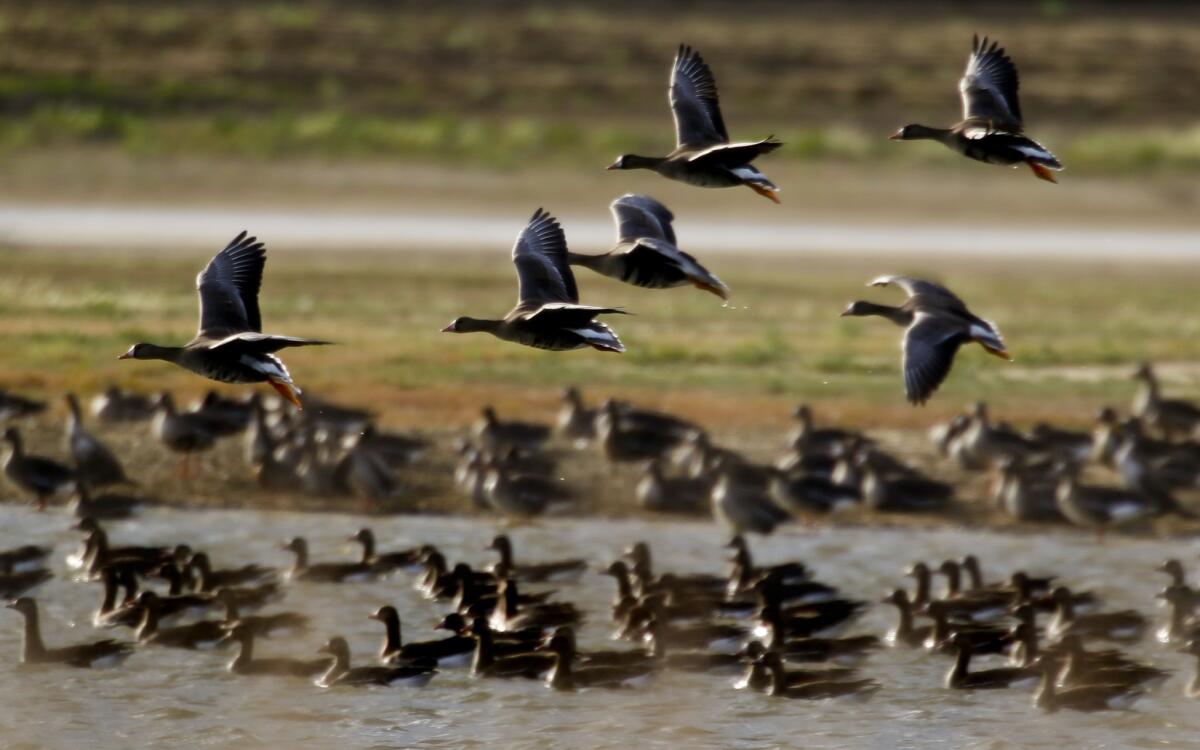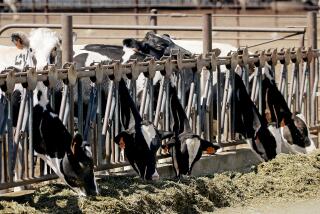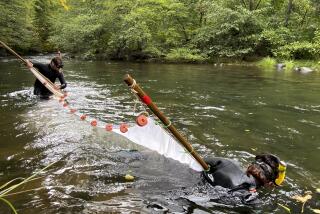Ducks, geese and rice -- the next victims of California’s drought?

The marshlands, canals and culverts in Williams, Calif., north of Sacramento, are temporary homes to geese and other migratory birds that use the area as a stop on the Pacific Flyway.
The nests of hundreds of thousands of birds and the food for millions more could be imperiled this year because of fewer rice crops in California – the latest symptom of the state’s historic drought.
Only about 375,000 acres of rice are expected to be planted this year, a 30% decrease from a typical year and the lowest in California since 1991, according to a statement from the California Rice Commission.
In summer, the rice is used as nesting for native mallards and shore birds, said Mark Biddlecomb, director for the western region of Ducks Unlimited, a wetlands conservation group.
In the fall, after the rice is harvested, the fields are flooded and the remaining grain becomes food for up to 7 million ducks and geese in the Sacramento River Valley, he said. If the crop is reduced, the feeding area becomes more concentrated, which makes the population more vulnerable to diseases.
“I hate to say it’s cascading, but it kind of is,” Biddlecomb said of the drought’s effects.
The drought also annually costs the state billions of dollars in economic activity and tens of thousands of agricultural jobs, the commission noted.
In 2014, about 408,000 acres of rice was planted, which was also below normal, the group said.
If not for a fortuitous spell of strong winter storms in late December that expanded feeding grounds, an outbreak of Avian botulism within the fowl population would have spread further, Biddlecomb said.
“This coming winter, if that doesn’t happen, and if we don’t use our water resources wisely … we can really be in a world of hurt,” Biddlecomb said.
For breaking California news, follow @JosephSerna.
More to Read
Sign up for Essential California
The most important California stories and recommendations in your inbox every morning.
You may occasionally receive promotional content from the Los Angeles Times.











